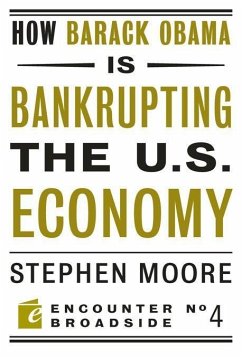In his first nine months in office Barack Obama has pursued the most aggressive government expansionist agenda since Franklin Roosevelt's new deal was launched in 1933. White House chief of staff Rahm Emanuel summarized the Obama first-year game plan best: "An economic crisis is a terrible thing to waste." So far, we have seen multi-trillion dollar bailouts in housing, banking, insurance, and auto industries, the stimulus plan, cap and trade, a $1.2 trillion health care bill, and of course, the $4 billion cash for clunkers program. None of this has worked. Now, six months after the stimulus progam, we sit at 9.4% unemployment. Two million more Americans are jobless. The debt has exploded like a cork from a bottle of champagne. We are now told that the Obama agenda will cost $9 trillion in debt as it plans to spend $42 trillion over the next decade. In this riveting broadside, Stephen Moore explains this rotten story of Washington arrogance and malfeasance, and reveals exactly why Obamanomics failed.
Bitte wählen Sie Ihr Anliegen aus.
Rechnungen
Retourenschein anfordern
Bestellstatus
Storno







